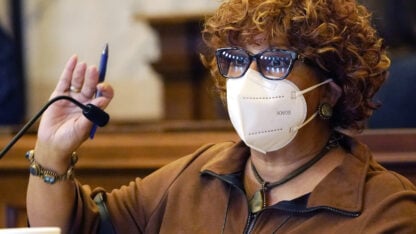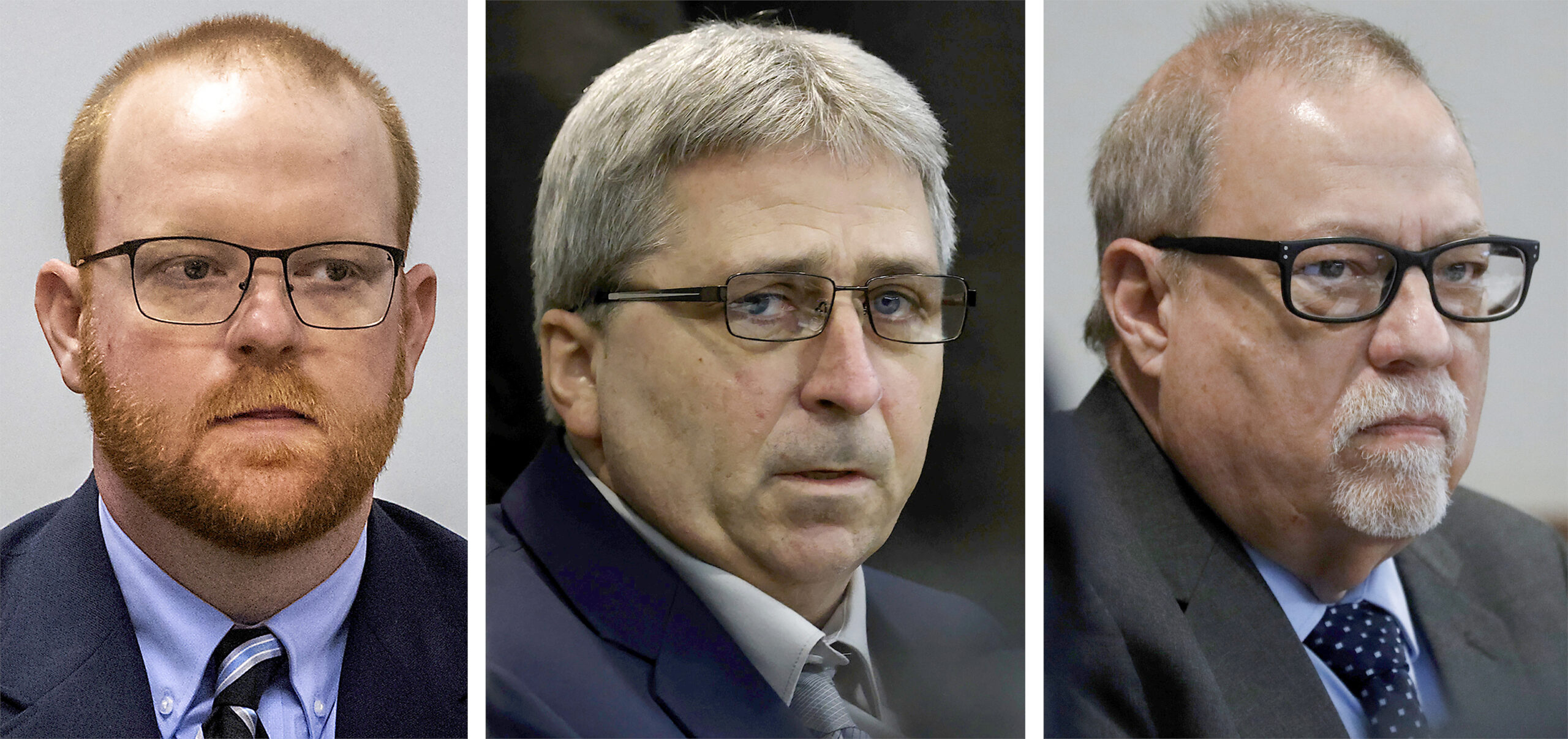A Georgia inmate convicted of the 1996 shotgun slaying of a man who had agreed to give him and another man a ride outside a Walmart store maintained his innocence before being put to death Thursday.
Warden Benjamin Ford pronounced Marion Wilson Jr. dead at 9:52 p.m. at the state prison in Jackson. Wilson, 42, and Robert Earl Butts Jr. were convicted of murder and sentenced to death for the shotgun slaying of 24-year-old Donovan Corey Parks in Milledgeville, about 90 miles southeast of Atlanta.
“I ain’t never took a life in my life,” Wilson said as part of a final statement before receiving a deadly injection of pentobarbital.
He also addressed his friends, family and supporters, saying: “I love y’all forever. Death can’t stop it. Can’t nothing stop it.”
He accepted an offer to have a prayer read.
The warden exited the execution chamber at 9:40 p.m. Records from previous executions show the lethal drug generally begins to flow within a couple of minutes of the warden leaving. Wilson smiled and looked out at a woman sitting in the witness area and spoke to her, but the microphone was turned off after the warden left the room and it was difficult to hear what he was saying.
He breathed deeply about 10 times, yawned and took several more deep breaths before becoming still.
Wilson was convicted in November 1997 of malice murder, armed robbery, hijacking a motor vehicle, possession of a firearm during the commission of a felony and possession of a sawed-off shotgun. Butts was found guilty of the same charges about a year later.
Butts, who was 40, was executed in May 2018.
Wilson’s execution came after the State Board of Pardons and Paroles, the only authority in Georgia that can commute a death sentence, denied his clemency request. Efforts by his lawyers to get the courts to intervene also were unsuccessful.
The killing occurred on March 28, 1996, after Parks went to a Walmart to buy cat food, leaving his car right out front. A witness heard Butts ask Parks for a ride, and several people saw them getting into Parks’ car, according to a Georgia Supreme Court summary of evidence and the testimony presented at trial.
Butts was in the front passenger seat and Wilson was in the back as they left. A short distance away, the men ordered Parks out of the car, shot him in the back of the head and stole his car, prosecutors said.
At Wilson’s trial, while asking the jurors to impose the death penalty, Ocmulgee Judicial Circuit District Attorney Fred Bright said Wilson “blew (Parks’) brains out on the side of the road.” A year later, during the sentencing phase of Butts’ trial in front of a different jury, Bright said Butts “pulled the trigger and blew out the brains of Donovan Corey Parks.”
Lawyers for each man seized on that to argue that their client wasn’t the triggerman and shouldn’t be executed. Wilson’s lawyers argued that while Wilson knew Butts probably intended to rob someone that night, he didn’t know that Butts planned to harm or kill anyone and that Wilson played no active role in the slaying.
State lawyers countered that Bright repeatedly said throughout the trial that it wasn’t clear which man fired the gun, but they said there was enough evidence that Wilson participated in the killing to merit a death sentence.
Wilson was the second prisoner executed by Georgia this year. He was also the 1,500th put to death nationwide since the U.S. Supreme Court reinstated the death penalty in 1976.
A group of protesters outside the prison held a banner reading: “1,500 executions and counting. Abolish the death penalty.”
Parks’ brother, Chris Parks, was a witness to the executions of both Butts and Wilson. He told The Associated Press last week that he was frustrated by how long it took for the death sentences to be carried out. Now, he said, he hopes his family can start to heal.
“Execution doesn’t bring him back,” he said, referring to his brother. “But what execution does is it offers a starting point for myself, my dad, our family, to finally get some sort of closure and to start healing.”









